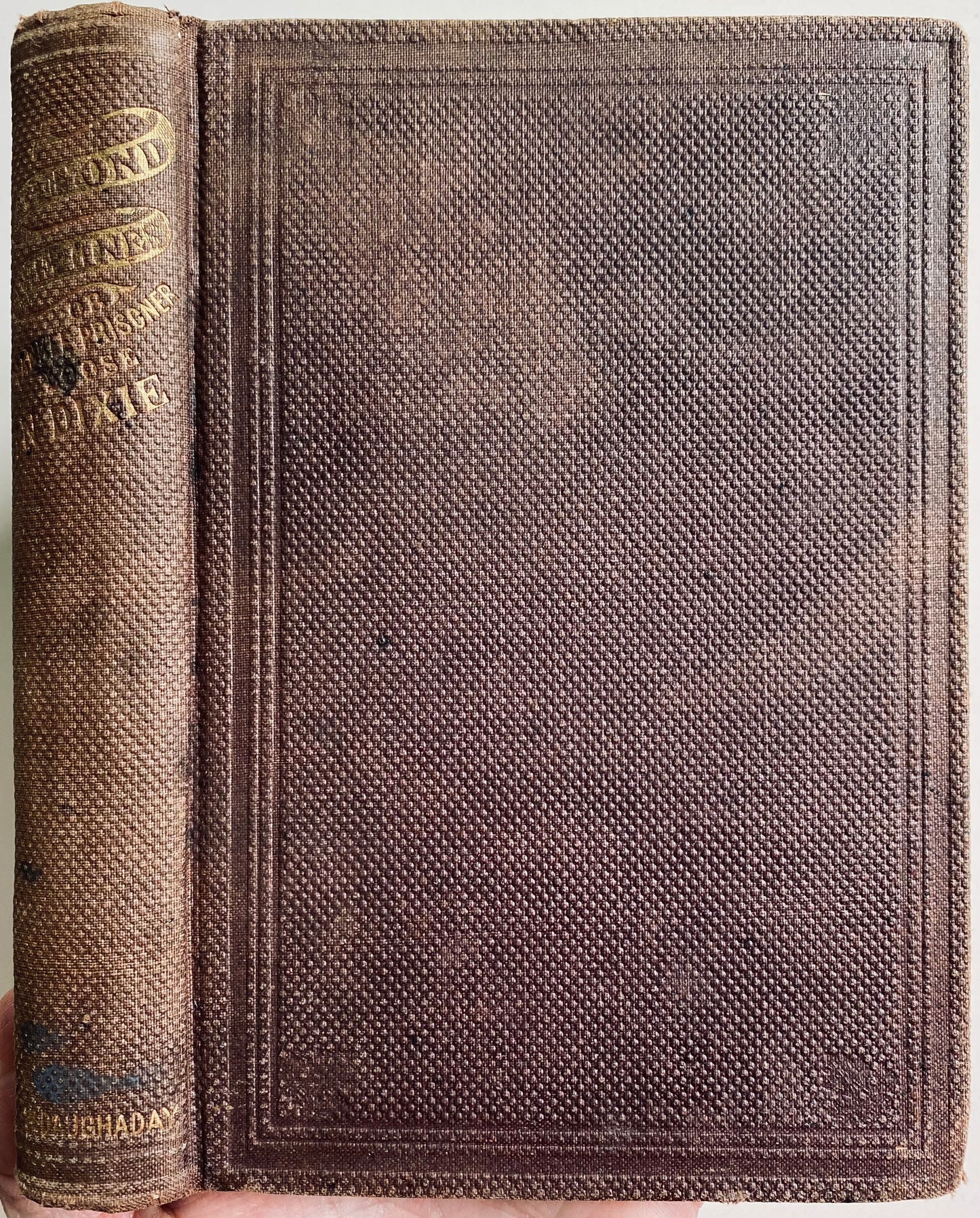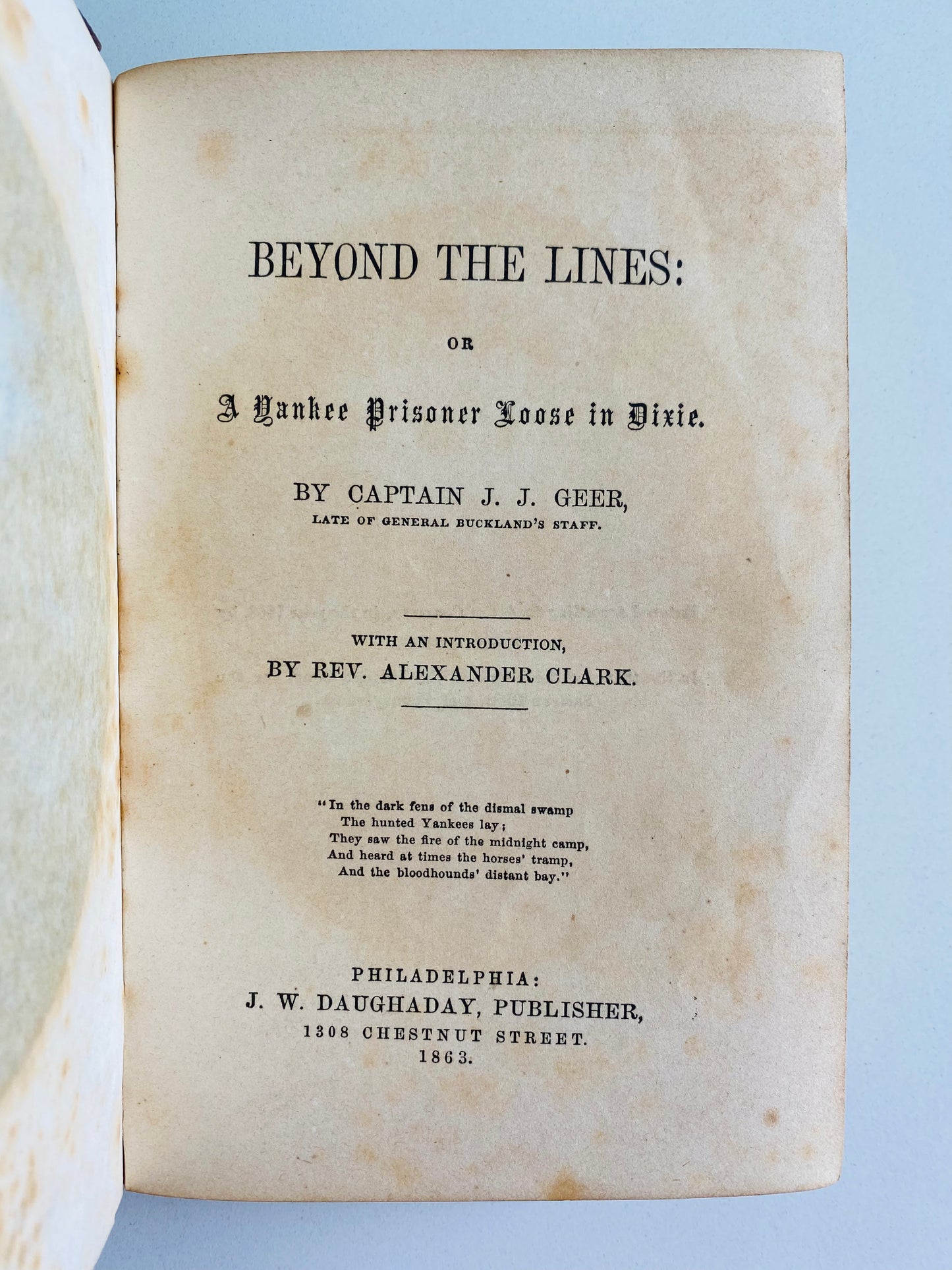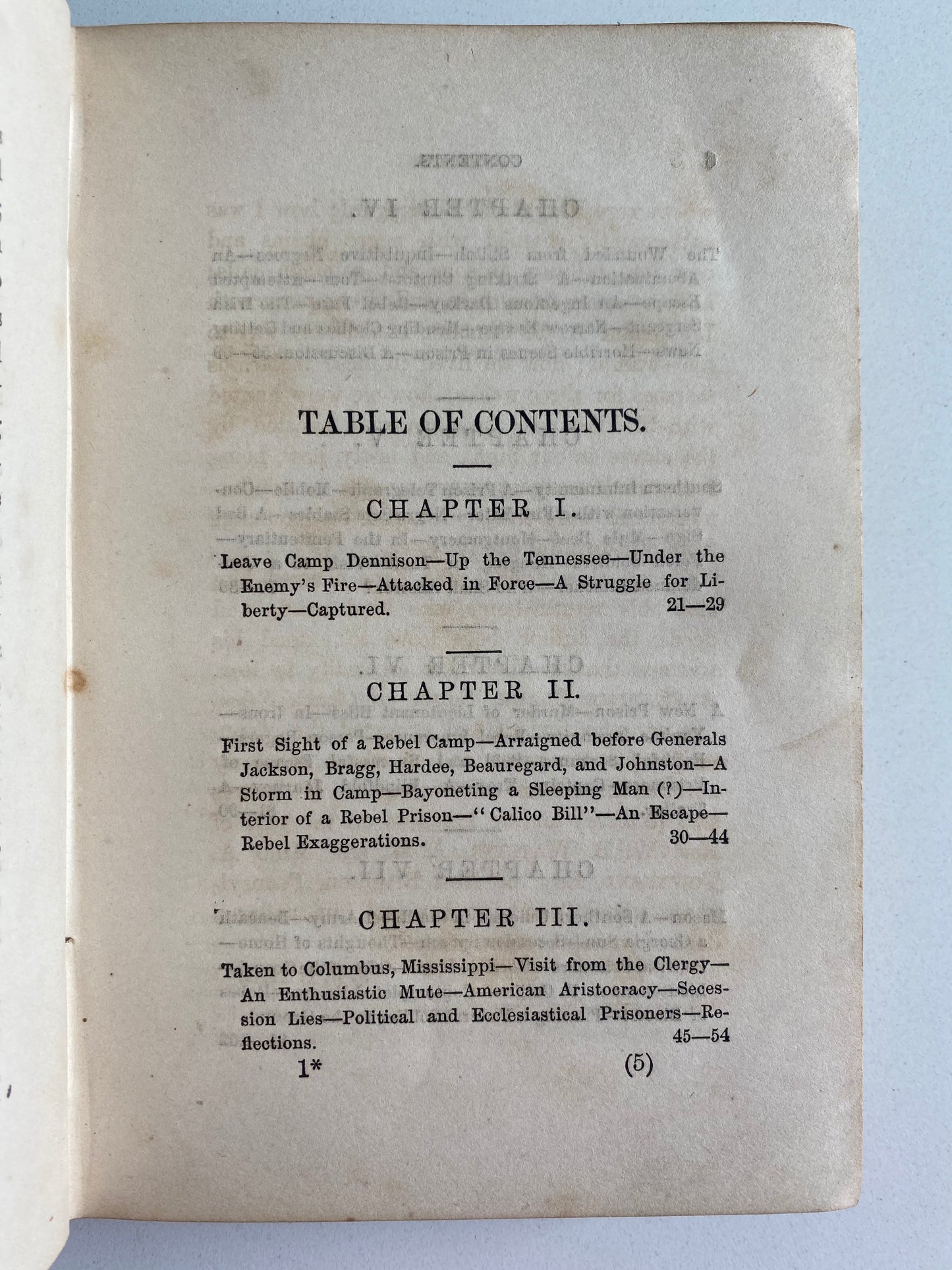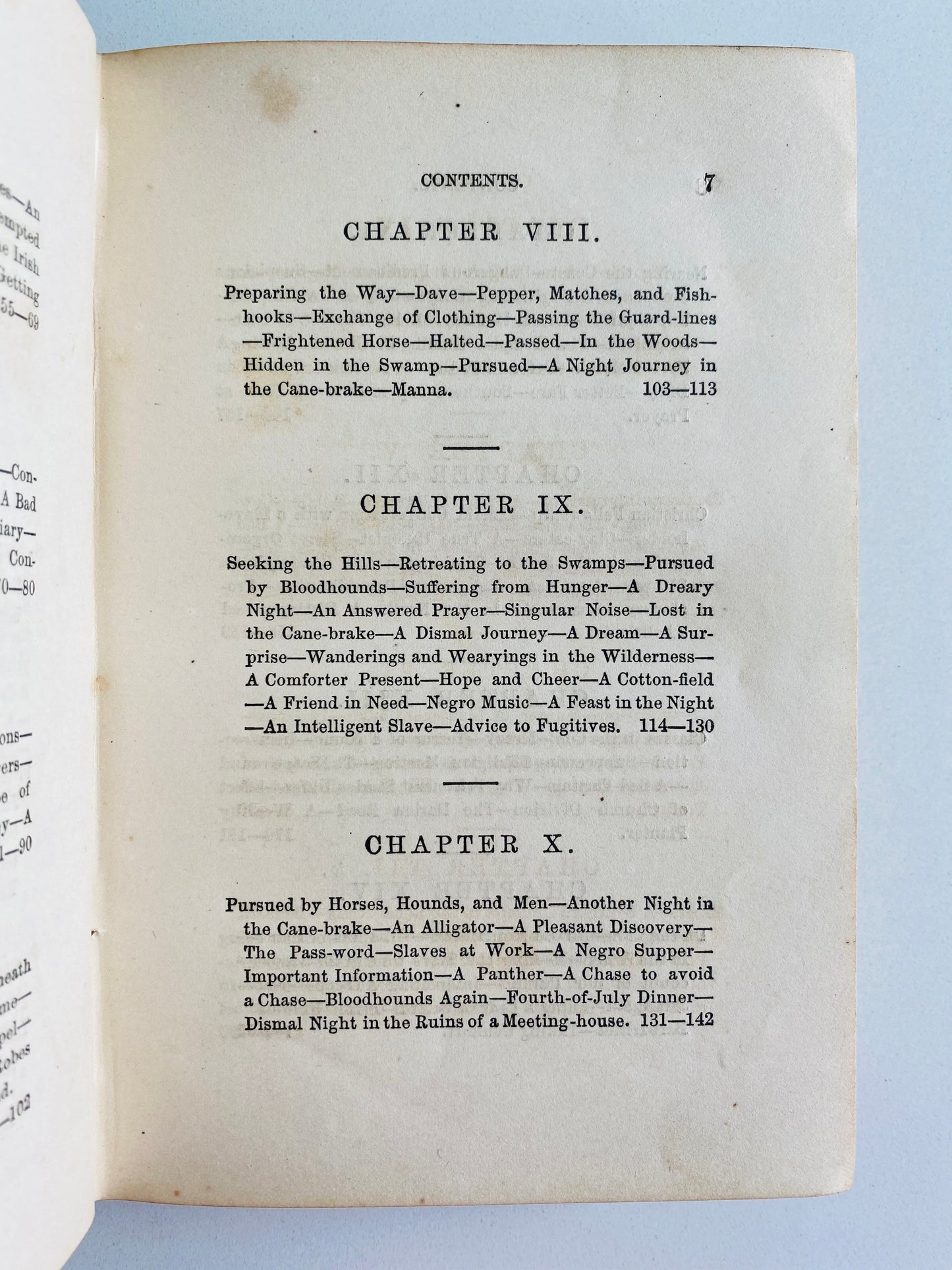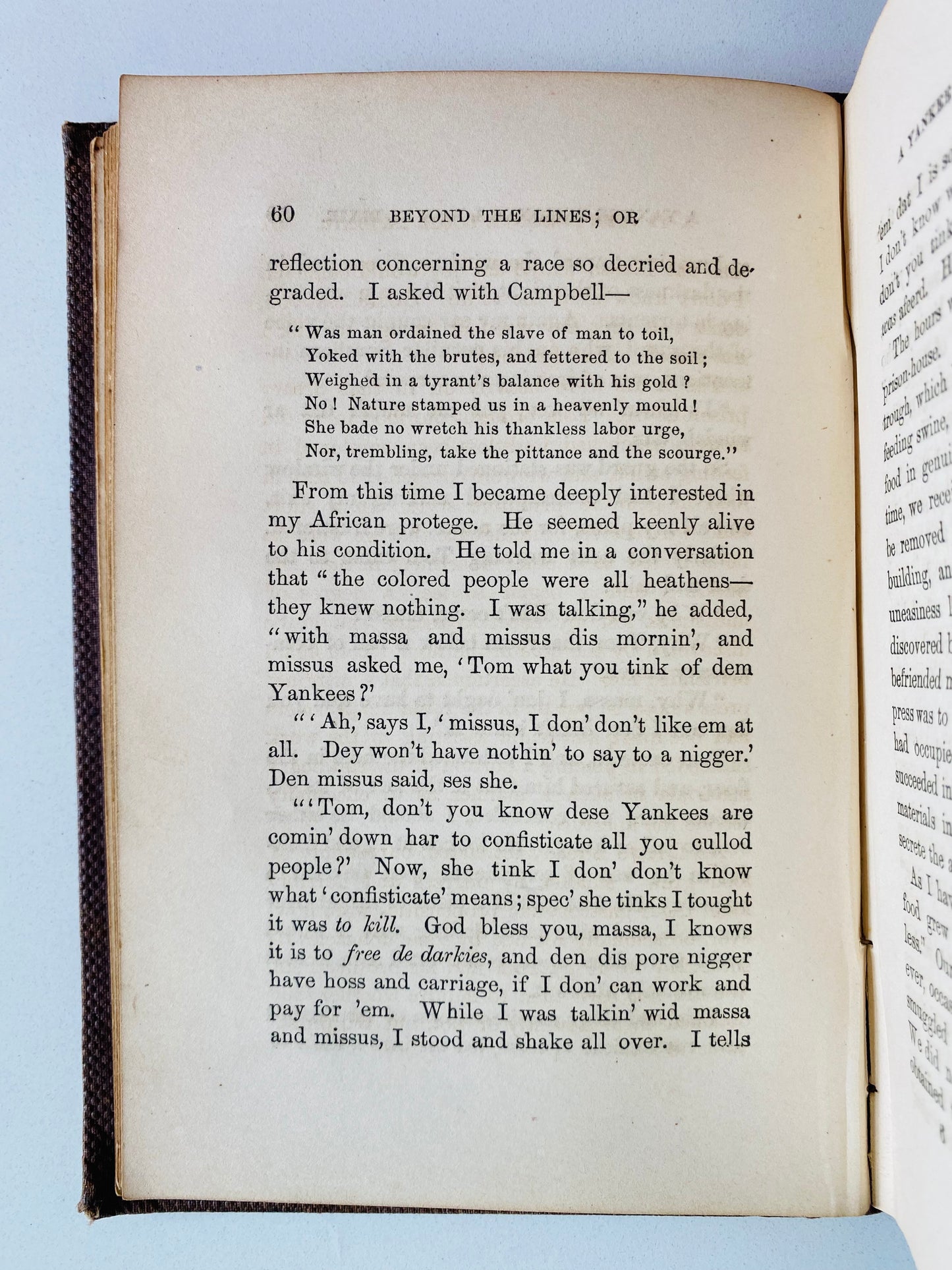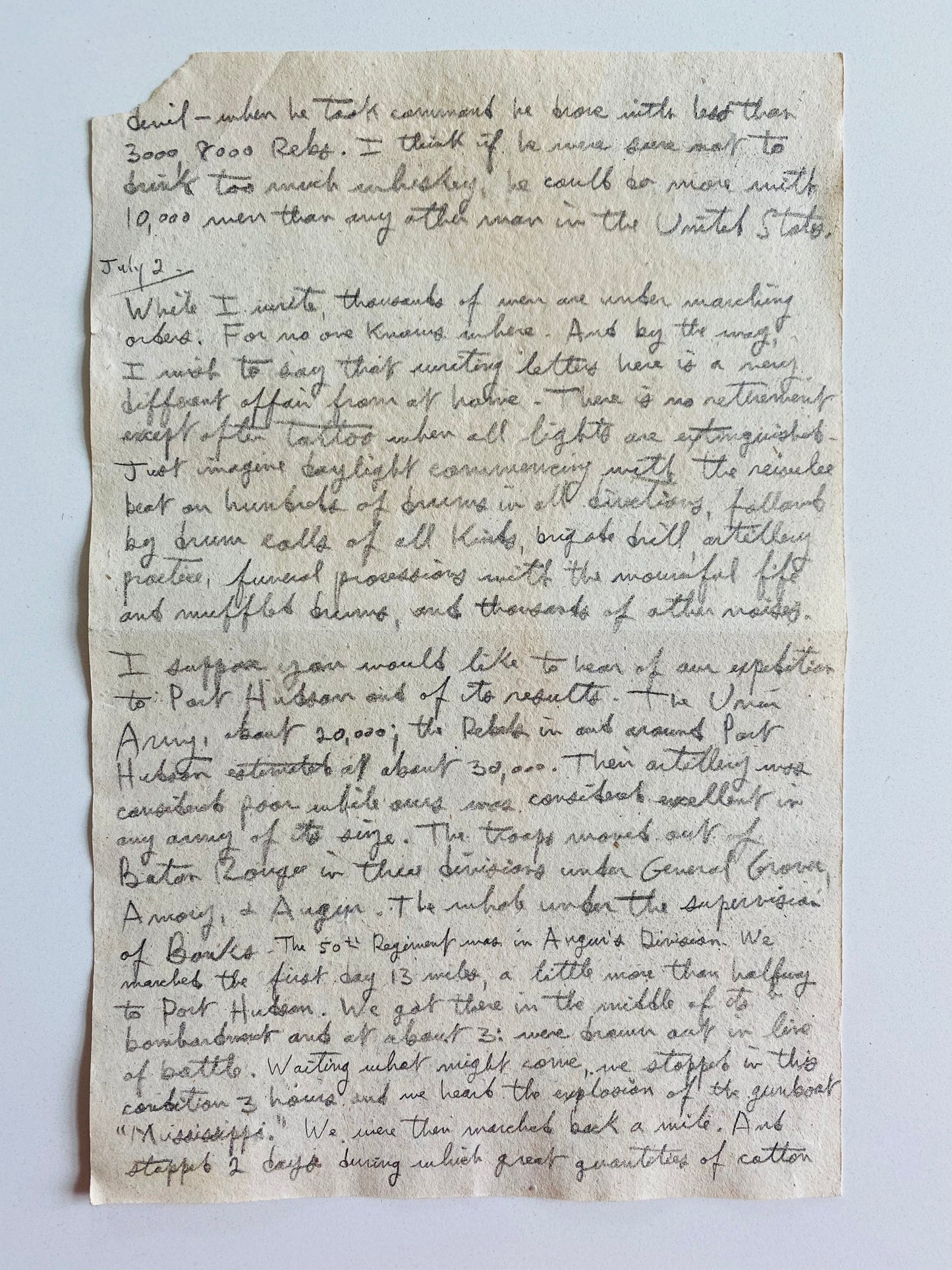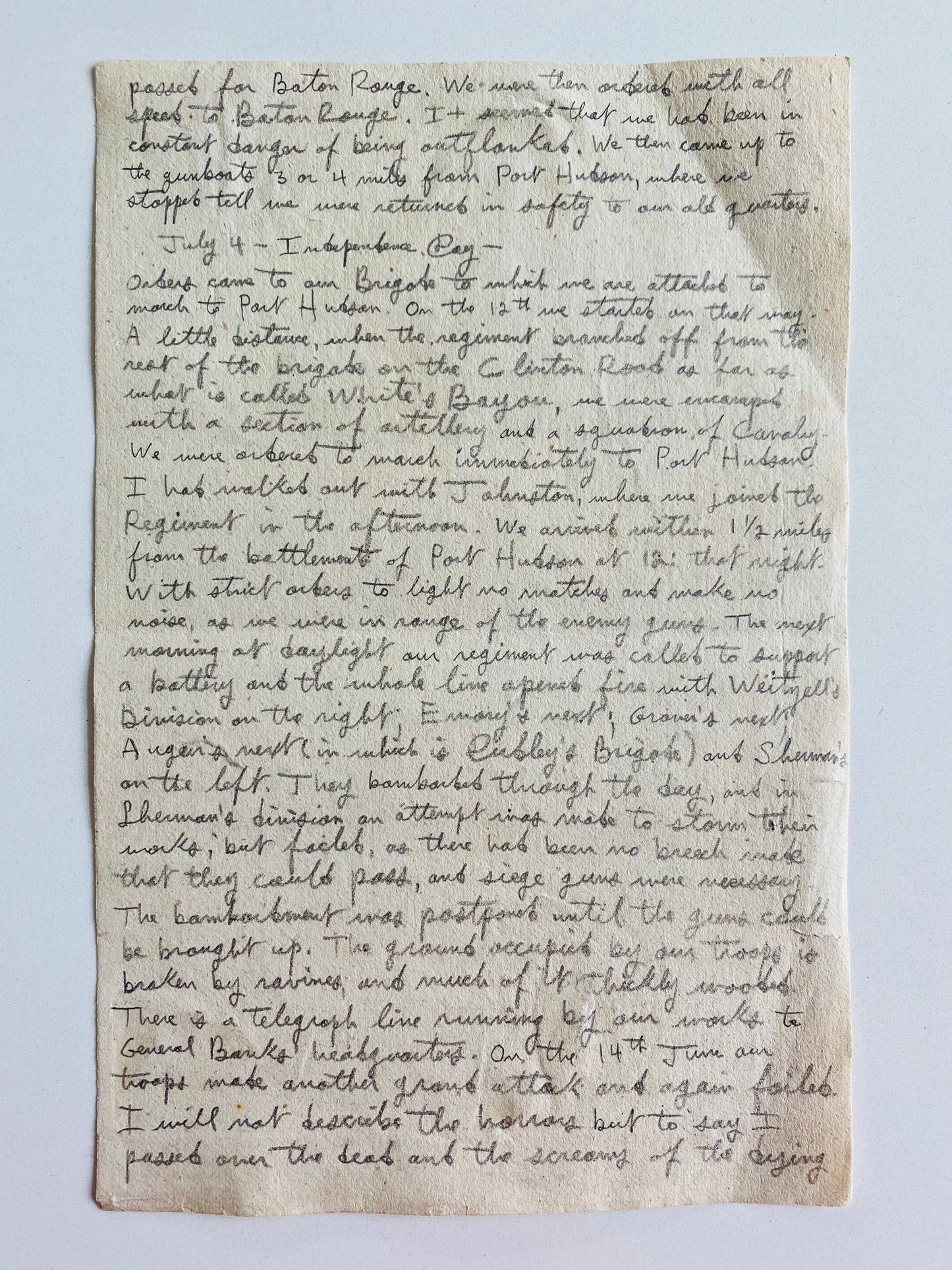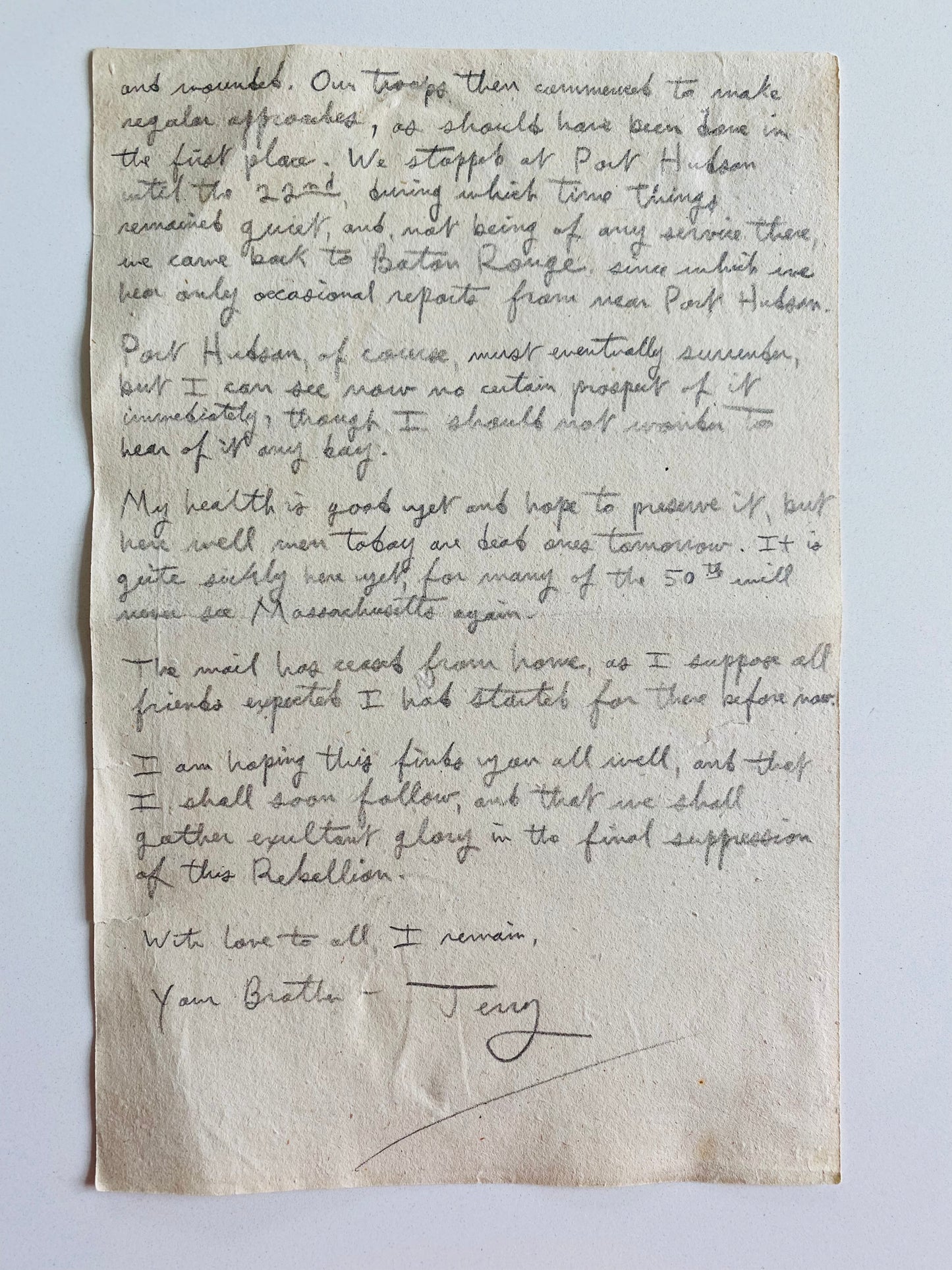Specs Fine Books
1863 CIVIL WAR. Rare Diary Style Letter Recounting Siege of Port Hudson in Baton Rouge, Louisiana
1863 CIVIL WAR. Rare Diary Style Letter Recounting Siege of Port Hudson in Baton Rouge, Louisiana
Couldn't load pickup availability
A wonderful little pairing, found together, including a rather desirable title on Prisoners of War during the Civil War, and a four page 1863 letter, written from July 1 to July 4, 1863, detailing the 50th Regiment of Massachusetts' involvement in the Siege of Port Hudson in Baton Rouge, Louisiana.
Mentions black soldiers being recruited from the liberated slaves, Generals Godfrey Weitzel, Cuvier Grover, Christopher C Augur, and Thomas W. Sherman; also Commander Nathaniel P. Banks. Fascinating, unpublished document.
The book:
Geer, Captain J. J. Beyond the Lines: Or, A Yankee Prisoner Loose in Dixie. Philadelphia. J. W. Daughaday. 1863. 285pp [Good condition, a bit cocked and rubbed, minor staining to last few leaves, some scattered foxing. Solid]
Tucked neatly inside, the following four page letter.
"Baton Rouge, Louisiana
July 1, 1863
Dear Brother Humphrey-
I have a good breathing span now, although things have been very busy here for quite some time now, so I will tell you all about some of our actions here.
We walk to watch the rise of the old Mississippi every day, which is now of great interest to us and to everyone who knows the value of it in this expedition. Our duties are to be ready for guard mounting at 8 1/2 o'clock in the morning, which usually takes 1 hour. Then at 10: we rehearse for about an hour, and then at 2: o'clock brigade drill until 5:00. Sometimes we have to serenade the officers pleasant evenings. If we get government rations we have more than we can eat, but there are so many go-betweens the soldiers & the government, we are often cheated. Everything is decided by a superior officer with appeal, and he is often a man of passion without brains. This demoralizes the soldiers. Let him have rights and self-respect and he will be twice the soldier. I think this is the great cause of the difference between the white man and the Black man, for they should be ready by now to learn the drill and seem to me that in the country where every Northern man almost has to become aclimated [sic] it is desirable to get as many of them as possible.
The inhabitants here (the white ones) are generally ******, and seem to be a mixture of French, Spanish, American, maybe Indian, Black, and whatever, and not fit for anything. Our Brigadier General is a regular daredevil - when he took command we drove with less than 3000, 8000 Rebs. I think if he were sure not to drink too much whiskey, he could do more with 10,000 men than any other man in the United States.
July 2.
While I write, thousands of men are under marching orders. For no one knows where. And by the way, I wish to say that writing letters here is a very different affair from at home. There is no retirement except after tattoo [?] when all lights are extinguished. Just imagine daylight commencing with the reveille beat on hundreds of drums in all directions followed by drum calls of all kinds, brigade drill, artillery practice, funeral processions with mournful fife and muffled drums, and thousands of other noises.
I suppose you would like to hear of our expedition to Port Hudson and of its results. The Union Army, about 20,000; the Rebels in and around Port Hudson estimated at about 30,000. Their artillery was considered poor while ours was considered excellent in any army of its size. The troops moved out of Baton Rouge in three divisions, under General Grover, Amory, and Augur. The whole under the supervision of Banks. The 50th Regiment was in Augur's Division. We marched the first day 13 miles, a little more than halfway to Port Hudson. We got there in the middle of its bombardment and at about 3: were drawn out in line of battle. Waiting what might come, we stopped in this condition 3 hours and we heard the explosion of the gunboat "Mississippi." We were then marched back a mile. And stopped 2 days during which great quantities of cotton passed for Baton Rouge. We were then ordered with all speed to Baton Rouge. It seemed that we had been in constant danger of being outflanked. We then came up to the gunboats 3 or 4 miles from Port Hudson, where we stopped till we were returned in safety to our old quarters.
July 4. Independence Day -
Orders came to our Brigade to which we are attached to march to Port Hudson. On the 12th we started on that way. A little distance, when the regiment branched off from the rest of the brigade on the Clinton Road as far as what is called White's Bayou, we were encamped with a section of artillery and a squadron of Cavalry. We were ordered to march immediately to Port Hudson. I had walked out with Johnston, where we joined the Regiment in the afternoon. We arrived within 1 1/2 miles from the battlement of Port Hudson at 12: that night. With strict orders to light no matches and make no noise, as we were in range of the enemy guns. The next morning at daylight our regiment was called to support a battery and the whole line opened fire with Weitzell's Division on the right, Emory's next, Grover's next, Augur's next (in which is Dubley's Brigade) and Sherman's on the left. They bombarded through the day, and in Lherman's division an attempt was made to storm their works, but failed, as there had been no breach made that they could pass, and siege guns were necessary. The bombardment was postponed until the guns could be brought up. The ground occupied by our troops is broken by ravines and much of it thickly wooded. There is a telegraph line running by our works to General Banks' headquarters. On the 14th June our troops made another grand attack and again failed. I will not describe the horrors but to say I passed over the dead and the screams of the dying and wounded. Our troops then commenced to make regular approaches, as should have been done in the first place. We stopped at Port Hudson until the 22nd, during which time things remained quiet, and not being of any service there, we came back to Baton Rouge, since which we hear only occasional reports from near Port Hudson.
Port Hudson, of course, must eventually surrender, but I can see now no certain prospect of it immediately, though I should not wonder to hear of it any day.
My health is good yet and hope to preserve it, but here well men today are dead ones tomorrow. It is quite sickly here yet, for many of the 50th will never see Massachusetts again.
The mail has ceased from home, as I suppose all friends expected I had started there before now.
I am hoping this finds you all well, and that I shall soon follow, and that we shall gather exultant glory in the final suppression of this Rebellion.
With love to all, I remain,
Your Brother - Jerry."
Letter folded some light stains, small corner loss not impacting text; on very early pulp paper, which was just then coming into common usage. Presumably the book was owned by the recipient of the letter in Massachusetts. We leave the pairing together in case some more direct connection can be discerned between the two.
Share
